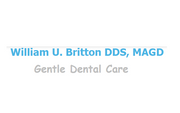What You Should Know About Receding Gums

Gum disease is a common condition experienced by nearly half of American adults. It starts off as gingivitis, which generally includes mild symptoms and may be reversed. If untreated, this may progress into periodontal disease, which can't be reversed and comes with more noticeable symptoms, including receding gums. If you’ve noticed this issue or want to take action now to prevent it, the following guide will broaden your understanding.
Causes
Gum recession is a common symptom of periodontal disease, a prolonged bacterial infection of the gums. It occurs when plaque and tartar build up around and beneath the gumline, causing inflammation, sensitivity, and bad breath. The bacteria that contribute to gum disease feed on sugar, so a diet full of sugary food and drinks, along with poor dental hygiene, may increase risk.
In rare cases, gum recession can be caused by other issues, such as trauma to the teeth and gums, which may occur during sports injuries or vigorous brushing. Purchasing a soft-bristled toothbrush and being mindful of pressure when using it are two tactics that can reduce the chances of injuring the gums during routine dental care.
Symptoms

Recession occurs when gum tissue pulls back, leaving more of the teeth exposed. It occurs gradually, so it may not be noticeable right away. In advanced cases, recession may also expose some of the tooth’s root, leading to pain, loosening, and even tooth loss. The condition also often comes with other symptoms of periodontal disease, such as bad breath, bleeding, and sensitivity.
Treatments
Gum recession can't be reversed once it has started, but you can treat the symptoms and try to stop the progression. The exact treatment depends on the cause. If you have gum disease from poor oral hygiene, updating your brushing and flossing habits may help. If it’s from vigorous brushing, your dentist can work with you to develop a softer technique.
Additionally, this condition can leave pockets between teeth that make it easier for bacteria to build up, so regular trips to your dentist become even more important. You may also benefit from scaling and root planing, a dental service that involves scraping plaque from the teeth under the gum line to prevent bacterial buildup. If these measures fail to improve the condition, a dentist may recommend a gum graft, in which tissue is transferred from a site like the roof of the mouth in an effort to facilitate tissue growth around the teeth.
If you’re concerned about gum recession or any other symptoms of periodontal disease, contact William U. Britton, DDS, MAGD, in Chillicothe, OH. This dentist has been serving local residents for more than 35 years and provides a wide array of dentistry services to maximize oral health and restore confidence in every smile. Visit the website for a full list of services or call (740) 772-2225 to make an appointment.
About the Business
Have a question? Ask the experts!
Send your question

